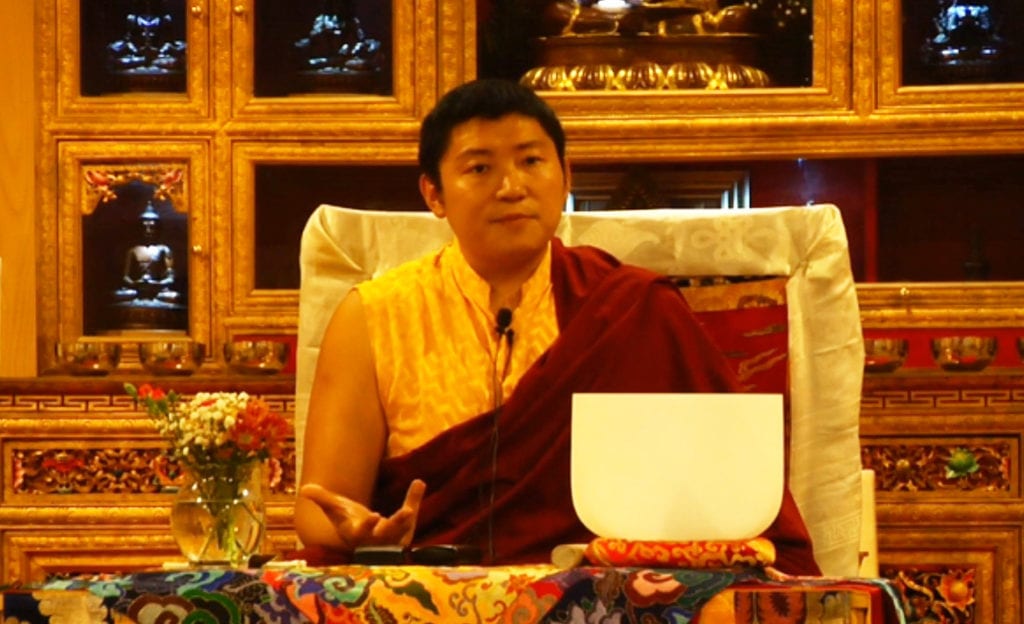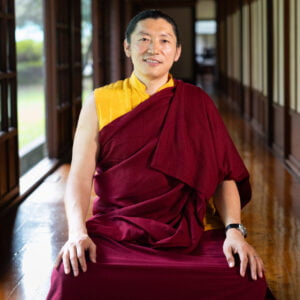Mahamudra practice requires a desire to change. Here Phakchok Rinpoche explains that Mahamudra is focused on practice, particularly on meditation. This meditation is quite structured and has clear guidelines. Rinpoche says that each individual experiences the practice in different ways. Thus we can’t really predict how quickly we will move through those experiences. Structurally, Mahamudra provides an easy framework to follow.
Mahamudra, however, relies very heavily on the elements of accumulation of merit and devotion. We should understand that we can improve our meditation in a few different ways. One way is to follow the structure as outlined on the meditation map. We move through the practices exactly as the chart specifies. In this method, we follow along and practice meditation on a daily basis. And we proceed step-by-step. If we do this, we will see some improvement.
Accumulating Merit, Practicing Compassion and Devotion
The second way is to combine the accumulation of merit with meditation. We can also combine compassion training with meditation. And of course, we can practice devotion with meditation. Rinpoche personally wants to see us combine all these aspects with meditation. This creates the conditions for our meditation to be most successful. Rinpoche understands that because of our cultural backgrounds, accumulation of merit may not make sense to us. Compassion, however, is a little easier: it makes sense to us. And honestly speaking, devotion really doesn’t attract many of us.
Self-Reflection
Rinpoche asks us to think about what we should do with this situation. We first need to think about what we really want. He asks us to consider some important questions. Is learning meditation really important to us? Is transformation really what we want? Or do we hang on to our cultural background and not make any changes? Do we just want to listen to the teachings? That is what we need to decide!
Rinpoche says that his own goal is very clear. He practices for transformation. He doesn’t ask too many questions and he doesn’t care too much about his own opinions. Here he reminds us that if we remember the goal of our practice, we should achieve the goal. And genuine compassion and devotion can bring rapid progress for our meditation.
Right now, our minds are pretty screwed up. So we need to fix our minds. We can’t really meditate with screwed-up minds. Even if we find that we are uncomfortable, Rinpoche reminds us to be decisive. If we want to transform, we need to do that! And, if we really want to change – then we will indeed change!










Responses